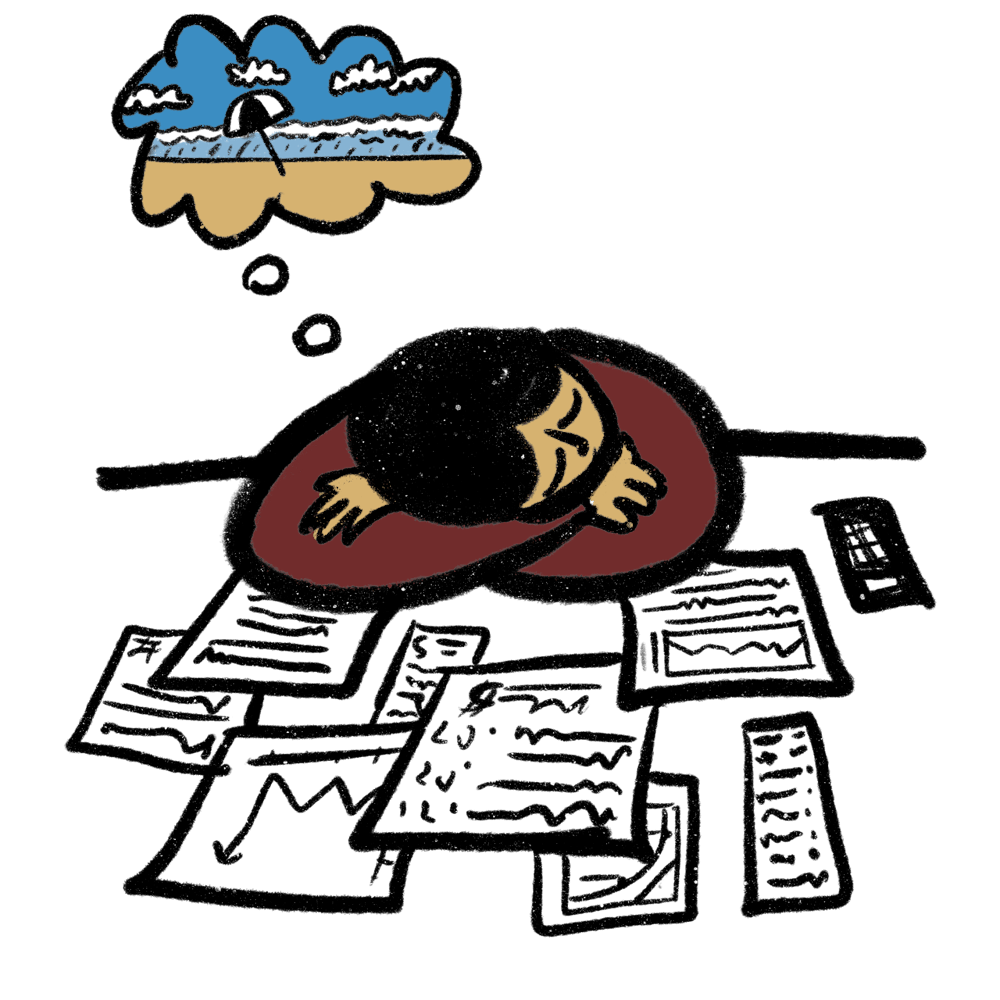I don’t love economics. In fact, even as a massive advocate for liberal arts education, last year I would have told you I hated it. After AP Econ in high school left my intellectual pride severely wounded, I determined economic theory was redundant and impractical, a paradoxical business study that doesn’t lead to any substantial income. Despite continuing my education in the liberal arts, I vowed that economics would remain far from my field. So the reader can imagine how starting Econ 4300 this semester originally filled me with an overwhelming sense of dread and disgust.
Despite the insufferable, windowless room class is held in and the pervasive lack of energy I have by 2 p.m. on Tuesdays and Thursdays, Econ 4300 has managed to teach me that new intellectual passions can take form in surprising, awkward and unnaturally difficult ways.
When I reason that the answer must be one thing, it is almost always entirely the opposite. In order to make any sense of it — to find any inch of common ground with the concept at all, I have to blow up and rebuild the way I think. Other difficult subjects in school did not really "blow up" the way I thought; if I was confused, I was just confused, or if I understood, I simply understood a fact. So what is different about taking economics now?
First, my expectations of comprehension were so low that genuinely any concept I understood in class felt like enormous success. This lack of pressuse allowed me to see that understanding is sufficient but not necessary for passion — a lesson I would never learn from my normal comfortable scope of study. The more confused I am, the more excited I become for the moment it finally clicks. Even though I fail (often) to get the answer right, I am never hurt by that failure, as I have been elsewhere in my studies. Instead, I must force myself to reason differently, to find a new type of thought, often in ways completely contrary to the nature of my logic.
I would love to know if other students have encountered this surprising enjoyment in other subjects they consider far removed from their sphere of intellectual stimulus. I went from hating something because I was “bad” at it, to loving it despite being “bad” at it. It wasn’t until I got over the fact that it didn’t come naturally, and actively searched for things that made it interesting me, that I was able to enjoy it. It's worth noting that this has created a net positive effect on my grades, which in high school AP Econ ran below my expectations and led to a complete deficit in confidence.
Interestingly, finding motivation and interest in the subject became a matter of focusing on economic form, not the subject matter. It is that aspect of the course that has flared my interest, and somehow saved me from the excruciatingly boring and difficult experience I remembered. As I searched for a meaningful analogy to apply to this column, I came upon the Formalist movement of art, which emerged in retaliation to the Impressionist era. Art during this time focused heavily on color, lines and structure rather than subject depiction to convey meaning.
Soft Spoken, a piece in the renowned formalist series "Homage to the Square" by Josef Albers, is one of the best examples I could find to explain how my perceptions changed. The piece quite literally depicts four squares nested together in varying shades of green. Though I am not an art critic, I think the intrigue of Soft Spoken is not related to the subject of squares at all but the way their form interacts with the eye after looking at it for a while. It's how a persistent observer may suddenly exclaim, "Is this really just squares?" and wonder how such a simple form can be so captivating and profound. In the same way, it is not exactly, for example, a small nation's tariff effect graph that excites my intellect, but the immovable principle of its economic form – no matter how many times I failed to predict its movements correctly.
My message to the reader: give yourself a chance with the subjects you don’t easily understand or that don’t match your self-declared passions.
If learning was only about what we understand easily, a degree would only be a sad reflection of the four years you spent running small circles in your mind. In giving your difficult subjects a second chance, you may find the most surprising, exciting learning comes by throwing your high performance expectations into the trash and diving headfirst into subjects you hate.
Do you like this story? The Plainsman doesn't accept money from tuition or student fees, and we don't charge a subscription fee. But you can donate to support The Plainsman.





